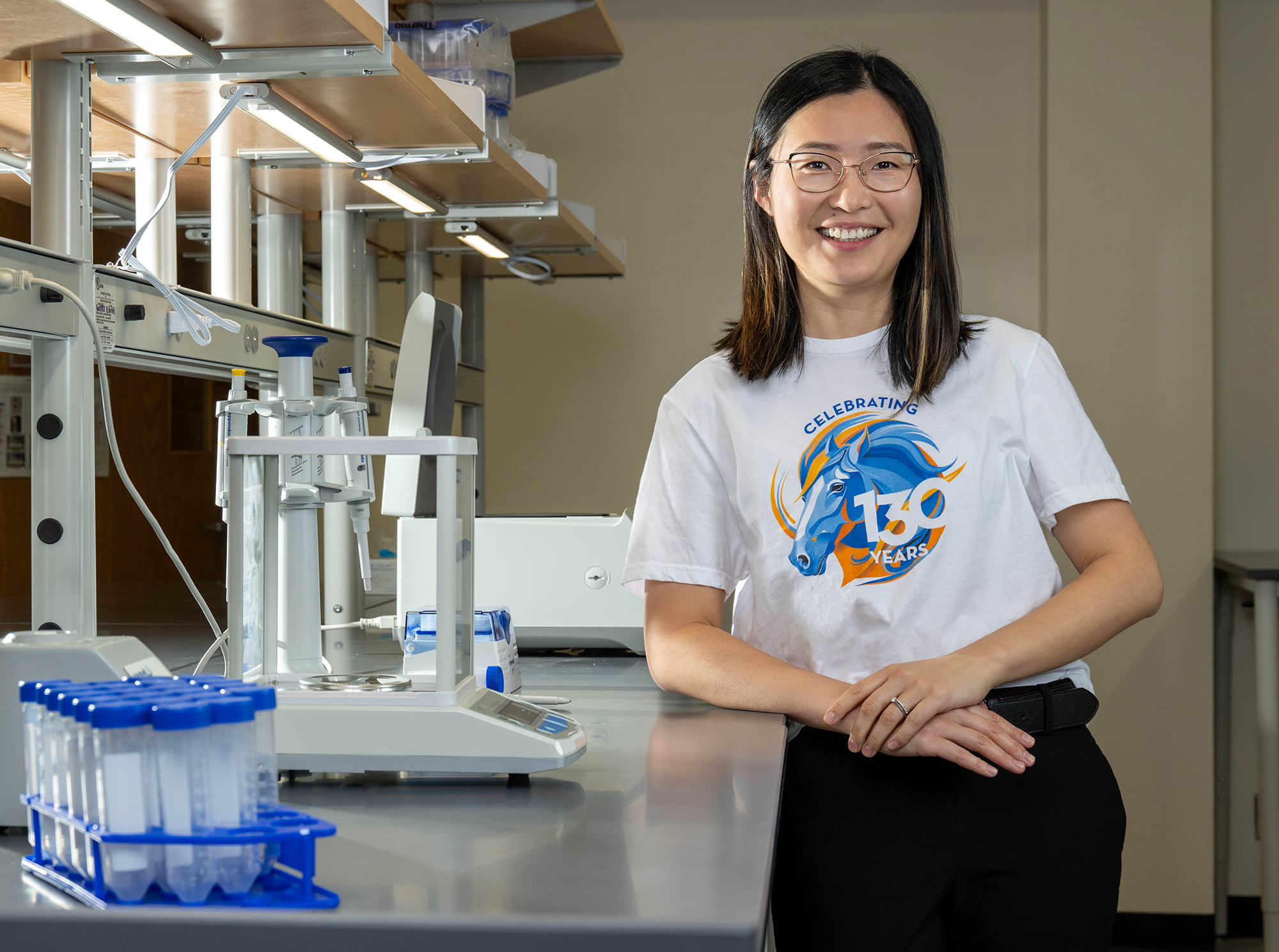Life Sciences Building, Room 206
501 S. Nedderman Drive
Box 19047
Arlington, TX 76019
Shen and colleagues publish paper exploring links between metal exposures and childhood gut microbiome

A new study led by environmental health scientists from The University of Texas at Arlington, University of California Los Angeles, University of Sherbrooke, and Harvard University links metal exposure to gut microbiome disruptions in children.
Yike Shen, UTA assistant professor of Earth and environmental sciences, is the corresponding author of the study, “Associations of Stool Metal Exposures with Childhood Gut Microbiome Multiomics Profiles in a Prospective Birth Cohort Study”. It was published in the December 2024 edition of the journal Environmental Science & Technology, a publication of the American Chemical Society.
The article was selected as one of the papers of the month for February/March by the Environmental Factor, an online news source published by the National Institute of Environmental Health Sciences, an institute of the National Institutes of Health.
Children are particularly vulnerable to health problems caused by exposure to metals including lead, iron, aluminum, nickel, and others. Disruptions to the gut microbiome, such as bacteria that resides in the human gastrointestinal tract, could contribute to health issues.
Bacterial communities and functional pathways can be revealed by microbiome multi-omics analysis, including metagenome, metatranscriptome, and metabolome. The gut microbiome plays an important role in childhood health and is closely related to development of the brain, immune system, and body growth. The impact of metal exposure on the gut microbiome is not well known thus far.
“This is a very interesting and impactful study by Dr. Shen and her co-authors,” said Arne Winguth, professor and chair of the UTA Department of Earth and Environmental Sciences. “We know that exposure to metals can be quite harmful to growth and development in children, and this new study shows a link to metal exposure and disruptions to gut flora in children, which has not been widely examined before.”
In this study, Shen and her colleagues analyzed stool samples from 116 children ages 8–12 from the GESTation and Environment (GESTE) cohort study in Sherbrooke, Quebec, Canada. The study is led by Larissa Takser, professor of medicine and health sciences at the University of Sherbrooke. Shen has been working with the GESTE cohort for over five years.
“Our study leverages multi-omics to reveal important connections between metal exposure and the childhood gut microbiome,” Shen said. “Our findings will help advance future research on the impact of metal exposure on children's health.”
The work is part of a collaborative effort with an outstanding research team which includes several of Shen’s long-term collaborators: Takser; Feng Gao, assistant professor of environmental health sciences at UCLA; and Andrea Baccarelli, professor of environmental health at Harvard T.H. Chan School of Public Health, among others.
The team identified multiple associations between metal concentrations in the stool samples and gut microbiome species and functional pathways. In one example, they found that higher zinc and magnesium levels were associated with higher presence of Turicibacter sanguinis, bacteria that lives in the gastrointestinal tracts of humans and other animals which are related to diseases such as obesity and diabetes.
Shen and her colleagues wrote that their research suggests links between metal exposures, pediatric gut microbiome multi-omics, and potential health implications. They added that future research will further explore the relation of these participants to childhood health.
--
The UTA College of Science, a Carnegie R1 research institution, is preparing the next generation of leaders in science through innovative education and hands-on research and offers programs in Biology, Chemistry & Biochemistry, Data Science, Earth & Environmental Sciences, Health Professions, Mathematics, Physics and Psychology. To support educational and research efforts visit the giving page, or if you're a prospective student interested in beginning your #MaverickScience journey visit our future students page.